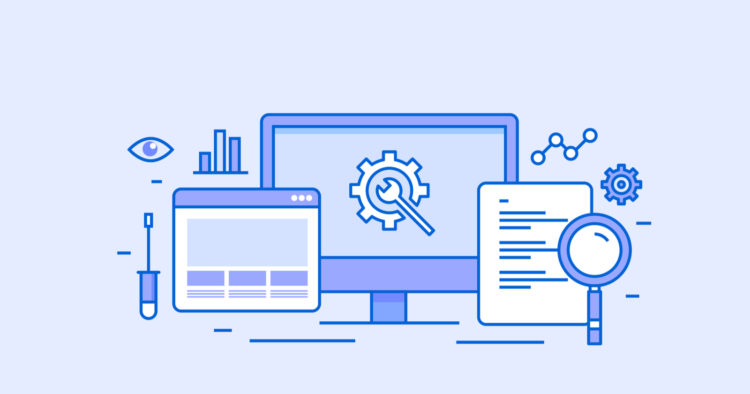Search Engine Optimization (SEO) is defined as a practice of optimizing your website to get higher rankings in search results and getting more organic traffic to your site. It is an essential digital marketing strategy for websites to increase their online visibility organically.
SEO Basics

To learn about SEO in a more constructive way, first, you need to be aware of SEO basics and why having an optimized website is important for your business.
While there are paid advertising techniques such as Pay-per-click (PPC), that can attract traffic to your site, such paid advertisements cannot get you the same results because they get way fewer clicks than an organic search result for the money invested. This is why a good SEO strategy is important for any business. It doesn’t matter whether you have a blog, selling a product or service, or anything else, SEO is a must for every business to stand a chance in this online world.
Once you start learning about SEO, you will come across some terms like on-page SEO, off-page SEO, technical SEO etc. All these terms are important in understanding Search Engine Optimization. But, there are two terms that you should focus on while creating your SEO strategy, black hat SEO and white hat SEO.
The black hat SEO is where you don’t follow the search engine guidelines and use some unethical techniques to get higher rankings in a short time on the Search Engine Results Page (SERP). But, your site will get banned or penalized for using such techniques. On the other hand, white hat SEO is the technique where you adhere to the search engine guidelines and focus on quality link building and a user-oriented approach.
How Search Engines Work

For your site to appear on the search results, your site needs to be visible on search engines. If it is not visible on the search engine then there is no way it will appear on the search engine results page. There are three main functions through which search engines work that are:
- Crawling
- Indexing
- Ranking
Crawling
Crawling is the process where a search engine sends robots commonly called crawlers to find new and updated content by using hyperlinks. These crawlers scan the web pages and follow the links on the web page to find new URLs. The content can be anything like image, video, PDF etc.
Indexing
After crawlers find new and updated content, they store it in a massive database called Index. They only store the content which they think is good enough for the searcher. If any of your pages don’t get crawled and indexed then, there might be some issues you need to fix on the specific page.
Ranking
When a user searches, the search engines dig into the index and show the most relevant content in order to provide the best possible answer to the searcher query. This process is called ranking. So, if your site sits at the top of the search result for the specific query, then it means the search engine considers your site more relevant. There are different algorithms through which the search engine ranks the web pages. These algorithms consider various factors while ranking web pages. Some of them are:
- Backlinks
- Mobile Friendliness
- Page Performance
- Relevance of your content
- Freshness of your content
By knowing about these factors, you can optimize your site accordingly to rank at the top of the search engine results page.
Keyword Research

Now you know the way search engines work, it’s time to discover keywords that can help you in creating content that is valuable to both users and search engines. Keyword research is the only way you find what people are searching for. It is the only way to understand your target market and how they are searching your content, product or services. If you’re creating content that nobody is searching for then your site may not be able to rank on the SERP.
The first thing you need to do is to come up with a seed keyword that will help you to find more keywords. Let’s say your niche is digital marketing, just write the digital marketing in the search engine and see the suggestions that appear automatically. You can use the People Also Ask or Related Searches section to find the relevant keywords for your niche. Try to find keywords that have lower competition but can help you in ranking higher on the SERP for a specific keyword. You can use different tools like Ahrefs, SEMrush, keyword finder etc. to know about the search volumes of different keywords.
On-page SEO

Once you know about your target audience and the keywords you want to focus on, it’s time to move on to the next step which is on-page and technical SEO. The on-page SEO is everything that we do to optimize our content according to the search engine. The on-page SEO includes things like internal links, image optimization, title tags, adding the keyword to the header tags, anchor text, using keyword in meta description, etc. All these things have an impact on your on-page SEO.
For instance, the title tag is the first thing a user sees. If the title tag isn’t compelling enough then the chance of getting clicks on your site is quite low.
The title tag also determines the organic CTR. The organic Click-through-rate (CTR) helps search engines in determining whether the link is relevant to the user or not. If your site is getting higher CTR, then search engines like Google can move your search rankings to the top. So, it is very important your site has a higher organic CTR. To get organic CTR, you can use tools like SerpClix which helps in improving CTR for a particular keyword.
Off-Page SEO

Off-page SEO is about getting quality backlinks from authoritative sites which helps your website to get higher rankings in the search results. There are different techniques you can use to build these links such as Guest blogging, Email outreach, broken link building etc.
But, the question is why are these backlinks important? Nowadays, search engines like Google give more importance to the sites which have quality backlinks from the sites that show the quality of EAT which is an acronym for Expert, Authoritative, Trustworthy. So, whenever a site gets a high-quality and relevant backlink from an authoritative site, it gets rewarded with higher rankings on search engines.
Conclusion
Keep in mind that SEO is evolving and it is a dynamic field. The techniques that have been working so far may not work in future. However, there are some fundamental elements of SEO that remain the same from the start. Everything we have discussed above can provide a great base for SEO and help you in honing your site to get more organic traffic from search engines.
 Hi Boox Popular Magazine 2024
Hi Boox Popular Magazine 2024



